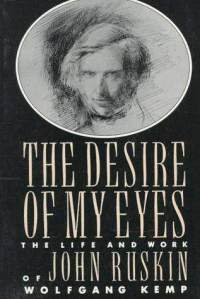Everyone is welcome.
The Whistling Season is set in the past in rural eastern Montana—and addresses that time and place in distinct, uncluttered prose that carries the full enthusiasm of affection and even love—for the landscape, the characters, and the events of the story—without being sentimental or elegiac. The novel is narrated by an aging Montana state superintendent of schools, Paul Milliron, who is charged with deciding the fate of the state's last scattered rural schools, and who, in the hours preceding his meeting to determine those schools' fate, recalls the autumn of 1909, when he was 13 and attending his own one-room school in Marias Coulee.
Recently widowed, Paul's father, overwhelmed by the child-rearing duties presented by his three sons, in addition to his challenging farming duties, hires a housekeeper, sight unseen, from a newspaper ad. The housekeeper, Rose, proclaims that she "can't cook but doesn't bite." She turns out to be a beguiling character, and she brings with her a surprise guest—her brother, the scholarly Morris, who, though one of the most bookish characters in recent times, also carries brass knuckles and—not to give away too much plot—somehow knows how to use them.
The schoolteacher in Marias Coulee runs away to get married, leaving Morris to step up and take over her job. The verve and inspiration that he, an utter novice to the West, to children and to teaching children, brings to the task is told brilliantly and passionately, and is the core of the book's narrative, with its themes of all the different ways of knowing and learning, at any age.
Doig's strengths in this novel are character and language—the latter manifesting itself at a level of old-fashioned high-octane grandeur not seen previously in Doig's novels, and few others': the sheer joy of word choices, phrases, sentences, situations, and character bubbling up and out, as fecund and nurturing as the dryland farmscape the story inhabits is sere and arid. The Whistling Season is a book to pass on to your favorite readers: a story of lives of active choice, lived actively.
 |
| Ivan Doig |
Ivan Doig (born on June 27, 1939) is an American novelist. He was born in White Sulphur Springs, Montana to a family of homesteaders and ranch hands. After the death of his mother Berneta, on his sixth birthday, he was raised by his father Charles Doig and his grandmother Elizabeth Ringer. After several stints on ranches, they moved to Dupuyer, Pondera County, Montana in the north to herd sheep close to the Rocky Mountain Front. After his graduation from Valier high school, Doig attended Northwestern University, where he received a bachelor's degree and a master's degree in journalism. He later earned a Ph.D. in American history at the University of Washington, writing his dissertation about John J. McGilvra (1827-1903). He now lives with his wife Carol Doig, a university professor of English, in Seattle, Washington. Before Ivan Doig became a novelist, he wrote for newspapers and magazines as a free-lancer and worked for the United States Forest Service. Much of his fiction is set in the Montana country of his youth. His major theme is family life in the past, mixing personal memory and regional history. As the western landscape and people play an important role in his fiction, he has been hailed as the new dean of western literature, a worthy successor to Wallace Stegner.
Ivan Doig is the author of eleven books. Eight are novels, including English Creek and Dancing at the Rascal Fair, and three are nonfiction, including the highly acclaimed memoir This House of Sky, which was a finalist for the National Book Award.





















































